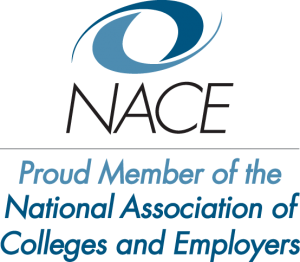Do U.S. colleges provide students the best career advice to build successful careers? According to an article in The Atlantic, maybe not. Citing the results of a Gallup-Purdue Index study suggesting that just one in six college graduates in the U.S. found their Career Services office to be “very helpful.” The article argues that perhaps colleges should spend fewer resources on attracting inbound students and more on helping existing students establish a meaningful career once they graduate. The poll found that graduates who visit their career center and have a good experience far better than those who don’t. However, the proportion who visit at all is barely more than half. Some students expressed concern that the services they received were too basic, focused primarily on interviewing tips or resume support; others felt there was a mismatch between what they most needed and what they received. “All of this would indicate that there’s room for colleges to improve,” wrote the article’s author, Emily DeRuy, “not only how they connect with students, but also what they offer.”
Trends in Student Guidance
The Gallup-Purdue data reflect two trends that ultimately fail to serve students well. The first is the increasingly common failure of many Career Services offices to treat students as whole persons rather than as merely the warm body behind the resume they bring in. There was a time when many campuses—like the University of Minnesota, where I trained as a counseling psychologist—offered both career counseling and psychotherapy out of the same office.
Under such a model, there is no separation between “career issues” and “personal issues,” no need to make a referral when a students’ career-related anxiety becomes debilitating, or when addressing their career decision-making challenges requires a deeper exploration of their broader sense of identity. Students could work with a psychologist on matters of career and personal development simultaneously, over the course of many sessions. This is now an exceedingly rare model, no doubt because of the costs. It’s been replaced by separate Career Center and Counseling offices, each becoming increasingly specialized, sometimes at the expense of serving students holistically. Indeed, because careers are often callings for students, the importance of holistic approaches to career development can hardly be overstated.
The second trend is the frequent struggle that many colleges have with assisting students in obtaining employment that aligns well with their training and sense of calling. Colleges are increasingly being held accountable for the employment outcomes of their students, but preparing students to navigate the job search process is a challenge, and few institutions have efficient ways, beyond internships and job fairs, of consistently connecting graduates with employers who are suitable matches for their skills. Furthermore, achieving this goal often stands in tension with the first trend—how can Career Services best coach students to become as job-worthy as possible while not ignoring the broader matters embedded in a sense of vocation that educators (and usually students themselves) wish to deepen?
These two trends help fuel my own professional pursuits. I’m a scholar whose collaborative research on people’s sense that their work is a calling explores how people connect what they do all day with a broader sense of purpose in life. People with callings typically experience all manner of benefits in work and life, ranging from more confidence in their career trajectory to a greater sense of purpose, meaning, and satisfaction with life. Discerning a calling, though, usually requires a deep level of personal insight into one’s values, interests, and personality, and how they translate into job opportunities that connect somehow to the common good.
At PathwayU, we use data analytics, drawn from a comprehensive online career assessment system, to connect people not only to career paths that fit them well but also to good-fitting employers. PathwayU has partnered with several colleges to meet students’ increasing demand for online tools and resources, but in a way that moves beyond work as merely a paycheck to a source of purpose and meaning. Many of our clients are members of NetVUE—Network for Vocation in Undergraduate Education—a network of more than 200 liberal arts colleges who are making deliberate efforts to foster a sense of purpose and vocation among their students, even while still equipping them to land a job when they graduate. Both of these goals are important, and many NetVUE schools have developed innovative ways of pursuing them while eliciting support from all over campus.
Best Career Advice: A Better Approach to Guiding Students
One example of this kind of forward-thinking, holistic approach launched two years ago at Calvin University in Grand Rapids, MI. The brainchild of Career Center director TaRita Johnson and her colleagues, the new Calvin LifeWork Program is a comprehensive initiative that offers students tools and training that targets their vocation, career readiness, financial literacy and life skills, and leadership development. The program introduces PathwayU’s comprehensive assessments before students even enroll, and faculty are trained to incorporate its results in advising conversations. Students meet with a career coach throughout the program, for the entire duration of their time at Calvin. And while the program is optional, students who stick with it receive a $3k scholarship for their senior year.
The program is brand new, so evaluation data will be forthcoming—but my hypothesis is that the proportion who view the program as “very helpful” will far exceed the 16% identified in the Gallup-Purdue Index study. I suspect that retention and graduate employment rates, already high at Calvin, will increase as well. Want students to succeed? Want to provide the best career advice? Treat them as whole persons while incentivizing the nuts and bolts training they need to implement their career choices effectively. Transforming Career Services into LifeWork may not only help students land jobs but also help them figure out how to turn those jobs into rewarding, life-long callings.







